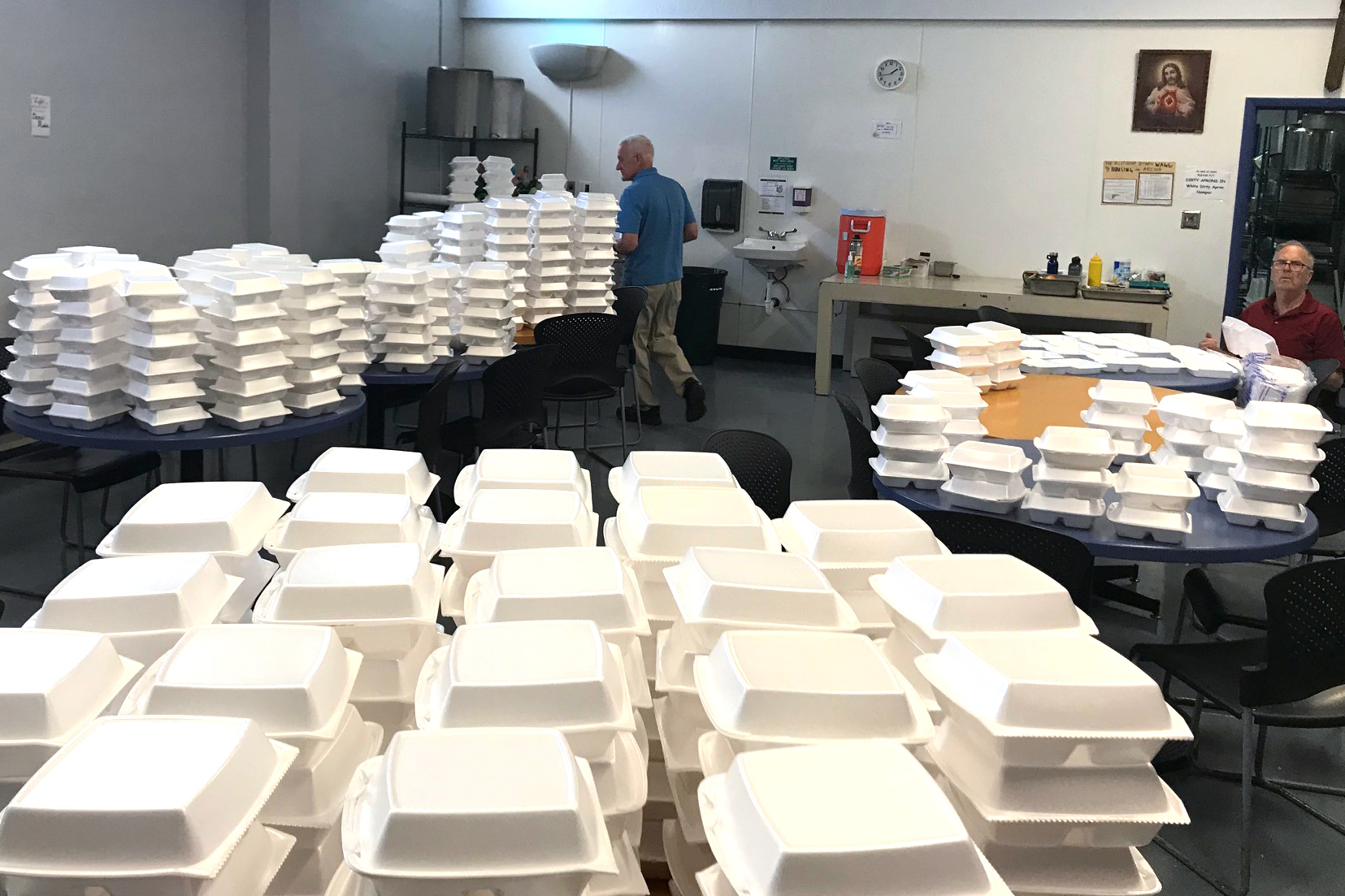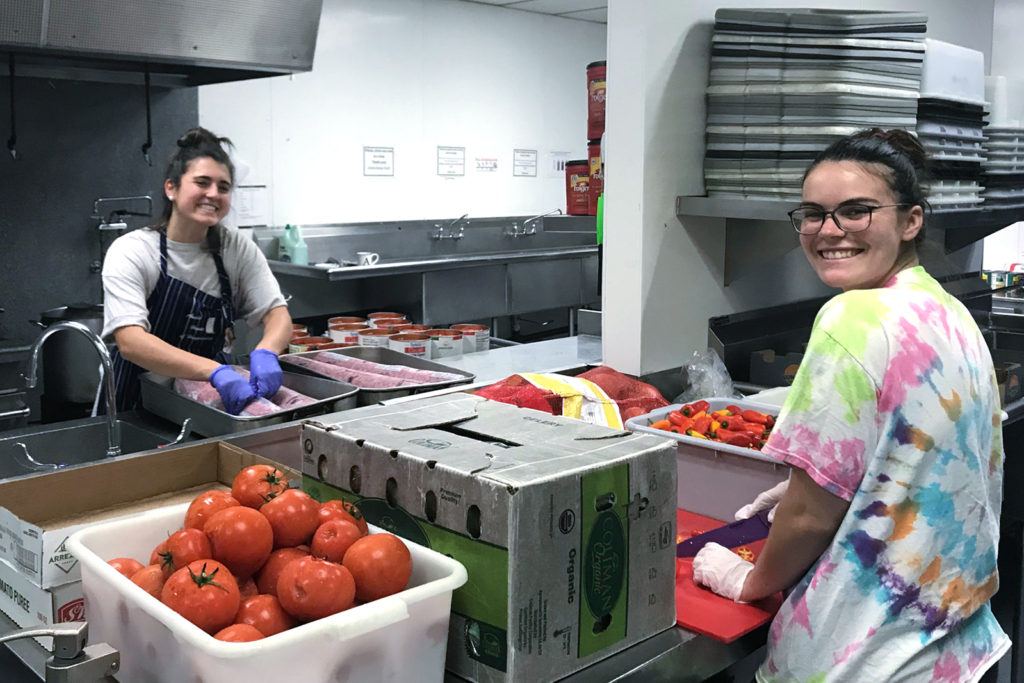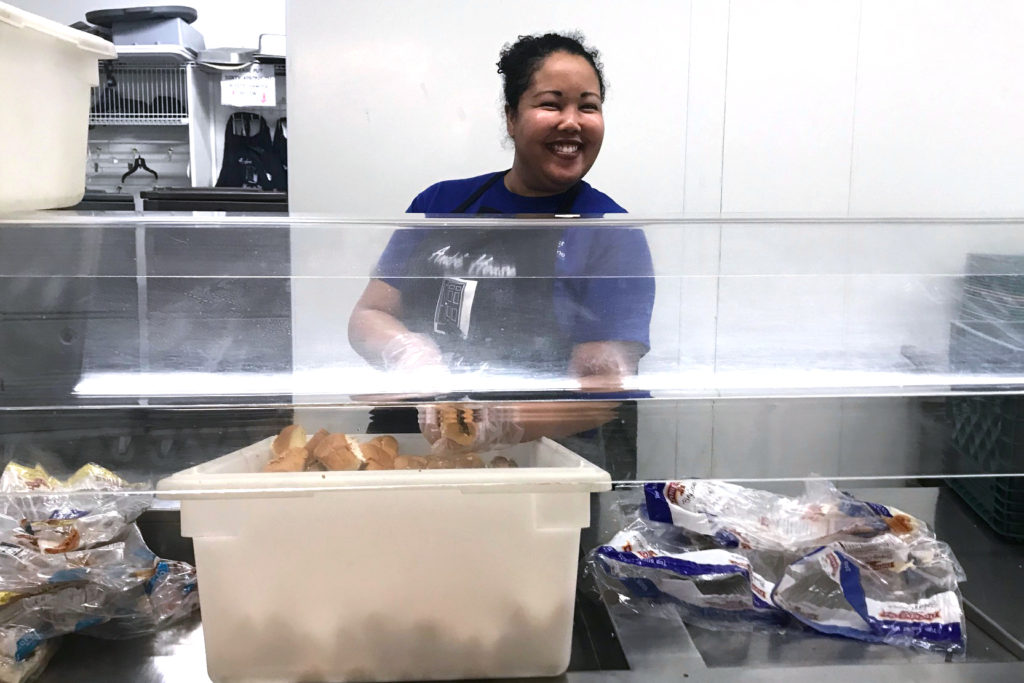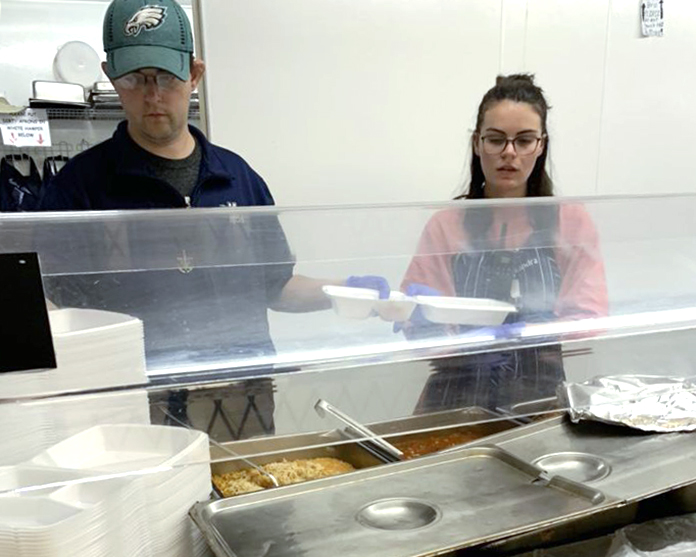In spite of nearly non-stop news coverage of the COVID-19 crisis, not everyone was tuned into the latest on the pandemic. A few people, in fact, were surprised to learn of it.
There’s the faithful 80-something-year-old André House volunteer. He doesn’t watch TV and did not know about coronavirus until a regular grocery store run revealed aisles heavily picked over.
Then there were André House guests who, upon arriving for a hot dinner traditionally served in a dining hall, was handed food in a “to-go” container instead. They commented with reactions like, “What the heck is going on? Coronavirus? Isn’t corona a part of the eye?” but also with “wow” and “What can we do to help you? We’re here with nowhere to go. What can we do?”
Whether guest or volunteer, those who frequent the Valley’s Catholic-run dining rooms adapted to a temporary new norm beginning in mid March: a skeleton crew on the ministry side sans volunteers, to-go meals for diners and drive-thru donations.
For those with ministries beyond that, it sometimes also meant temporary suspension of a few services, a new way to carry out others and creative ways to donate or volunteer from home. They’re all efforts to minimize close physical contact aimed at preventing spread of the coronavirus while maintaining a lifeline of services to people considered vulnerable long before the coronavirus medical pandemic.
St. Vincent de Paul’s five dining rooms are open regular hours but serve meals to go and without the hands-on support of volunteers — some 95 percent of its workforce. “It leaves us with this gap in manpower,” said Marisol Saldivar, public relations manager for St. Vincent de Paul.
Staff members take four-hour shifts, 12 at a time, to prepare 4,000 sandwiches handed out as daily meals. In the Family Dining Room at the main campus, children receive activity kits as well.
“Guests are just so grateful that we haven’t gone anywhere,” Saldivar said. Staff, too, are equally grateful. They’re used to a campus full of guests and volunteers. Smiles and laughter still exist, but through the car window during a drive-thru meal instead.
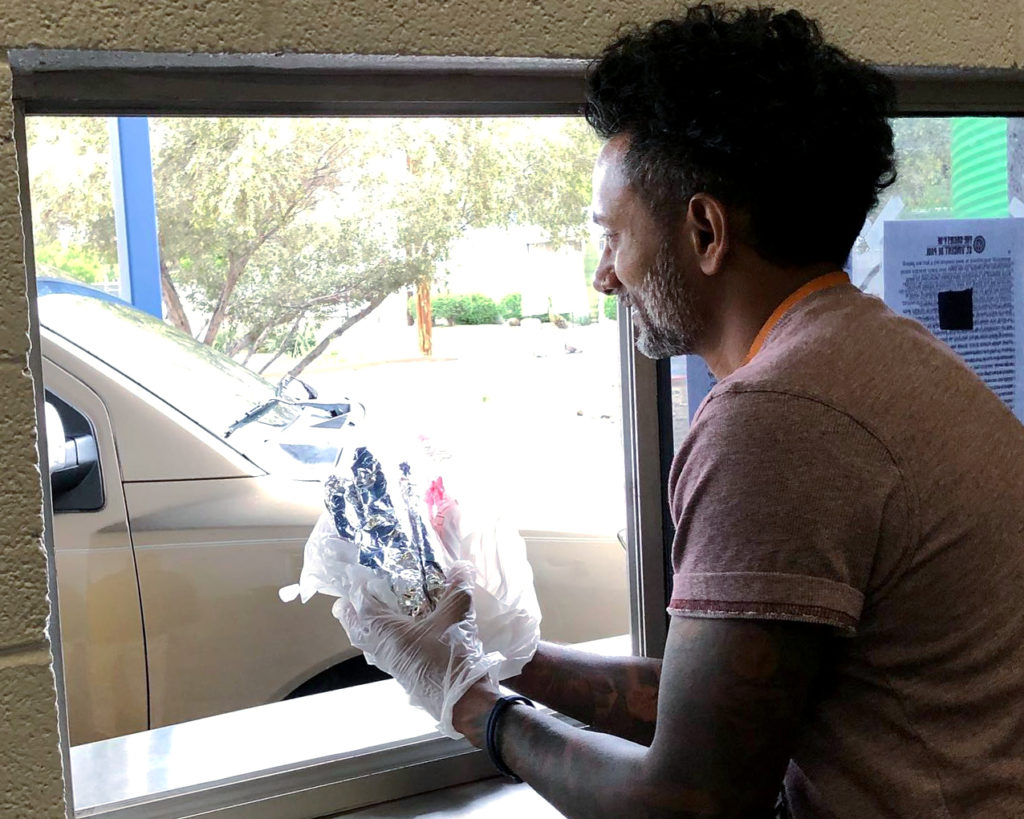

“It’s an opportunity to see another face, even if it’s from six feet away,” Saldivar said.
The first week of COVID-19 measures — the disease caused by coronavirus — saw regular numbers across SVdP dining rooms. Paz de Cristo in Mesa hasn’t reported numbers, but expects to use at least 20-30 loaves of bread daily the next few weeks in order to offer its nightly to-go meals. “Hunger is satisfied and hearts are full,” a March 22 Facebook post read.
Back in Phoenix at André House, which serves dinner to guests at the county’s Human Services Campus, only ongoing support will dictate how much longer guests there can eat. Core staff served 817 meals March 25. The average a month prior — with the help of volunteers — was 460-475 meals each evening. The extra volume meant some guests got the previous day’s leftovers. When that ran out, others had another leftover: turkey pasta.
A week prior André House served 750 hot dogs then ran out and offered peaches and chips “because that’s all we have. Breaks your heart knowing what people are making a ‘meal’ of,” Holy Cross Father Dan Ponisciak said in a Tweet.
The André House director later Tweeted: “Our numbers have skyrocketed since everything has happened with the coronavirus.”
Core staff is stretched to the max so to help them cope, they’re swapping one homemade meal a week for something purchased from a local restaurant. They’re sharing their journey via daily “Chronicles of COVID” posts on Facebook.
Beyond daily bread
The posts go beyond food. They reflect on graces and challenges of daily living for the population André House serves. The campus is essentially a ghost town with plenty of people at its peripheries, literally. The COVID-19 response plan spaced benches out for social distancing, kept shower and restroom services flowing and phone charging stations operational, but temporarily suspended laundry services and the clothing closet. Guests can still receive hygiene packs and blankets. They anticipate operating similarly for up to three months.
Over at St. Vincent de Paul, which feeds lunch to many André House guests, staff and volunteers are bracing themselves for a tidal wave of requests for help. The week of March 23 saw an increase in the number of food assistance requests. Staff anticipates that trend to continue, if not exponentially so, as more and more residents begin to miss paychecks or see smaller ones.
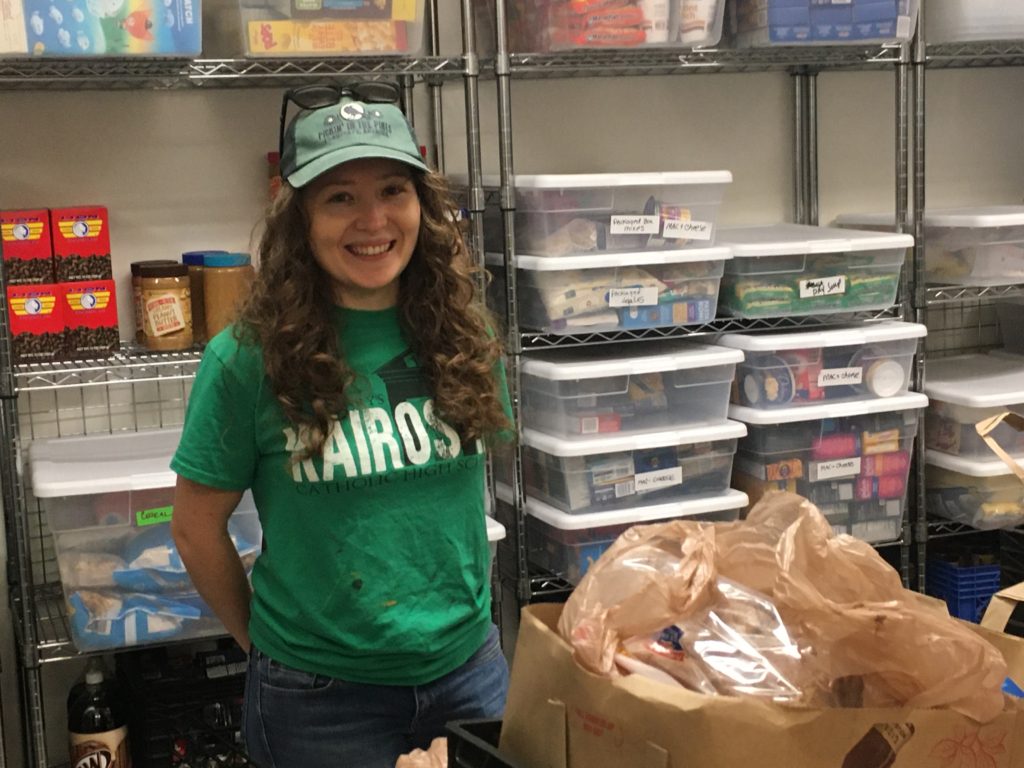

“Many of our Vincentians, they were adamant, ‘We’re not stopping,'” said Saldivar with St. Vincent de Paul. Their means of outreach have shifted, however. What used to be home visits to assess initial needs are now by done phone with food boxes delivered like parcels. Utility help is done online.
There’s that desire to help out of both faith and humanity, Salvidar said. The medical clinic now operates by phone and only emergency dental work is offered.
As another example, 75 people added their name to St. Vincent de Paul’s “Here to Help” list formed in response to the pandemic. The list hasn’t been activated yet, but likely will be soon.
Meanwhile, some volunteers are supporting efforts from home. One man shared crossword puzzles digitally and another made a resource kit for where to get help for certain items during the outbreak.
Help others during COVID-19
André House
Items (drop off or mail): pre-packaged cutlery, packaged snacks, toiletries
Paz de Cristo
Items (drop off M-F 8 a.m.-3 p.m.): bread, 20-30 loaves per day
St. Vincent de Paul
Items: food, clothing, sanitizing supplies, diapers, dish detergent, dish soap and shampoo
Volunteer: at-home crafts, research, email volunteer@svdpaz.org subject: “Here to Help” or (602) 261-6886
Key contacts at all of the charitable dining rooms say the best way to help right now is monetarily. It can easily cover emergency needs.
“A monetary donation allows us to be agile and meet that need,” Saldivar said.



